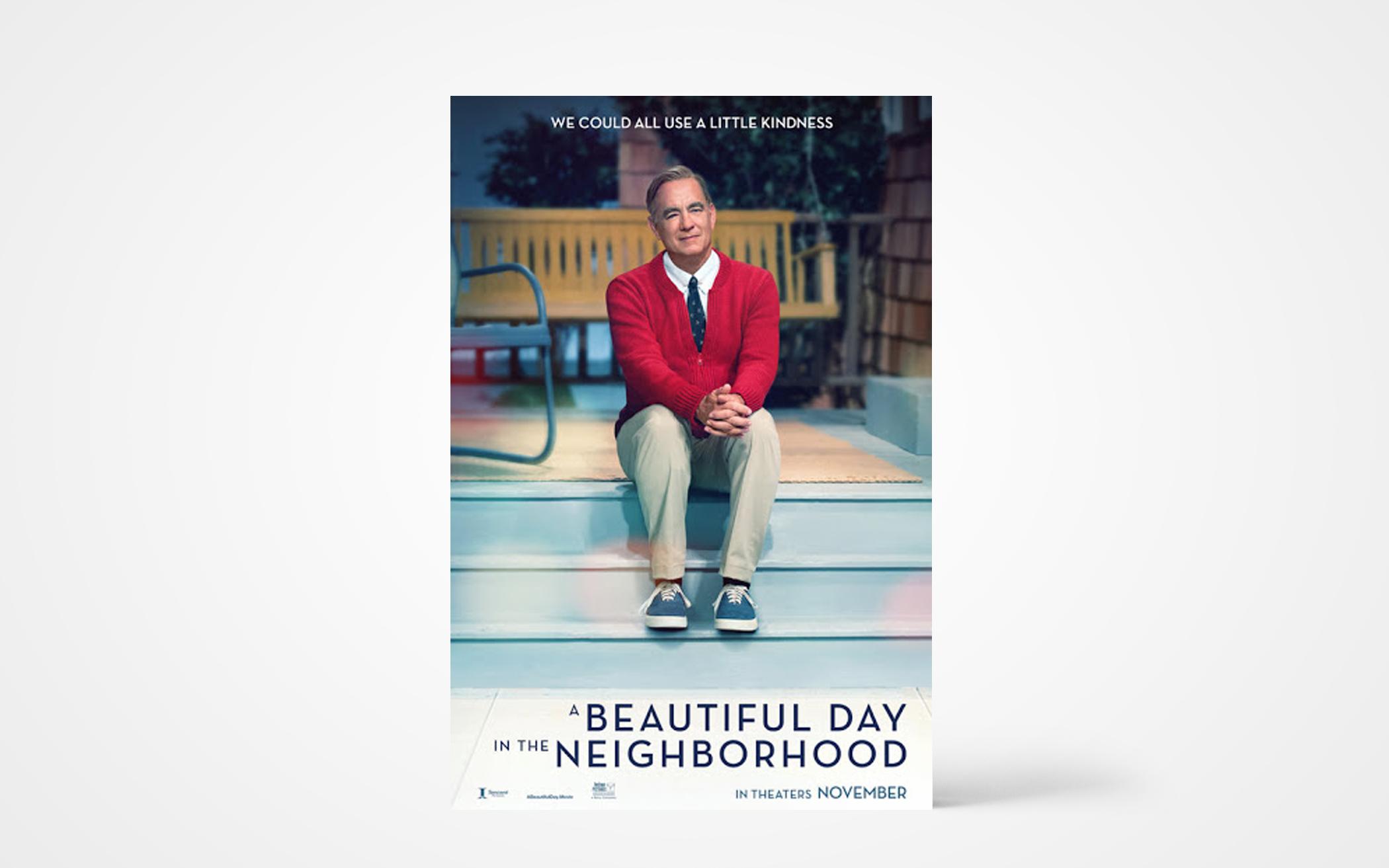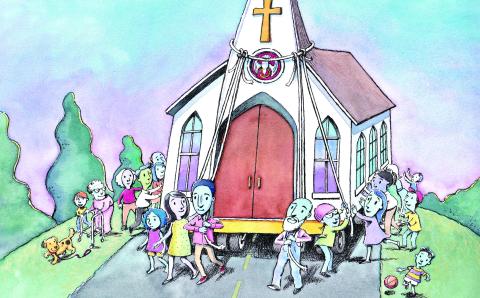For some reason, I thought I would be put off by A Beautiful Day in the Neighborhood. I didn’t say this out loud, but I resisted going to see this movie, even though I love Tom Hanks and liked the late Fred Rogers (Hanks). Who doesn’t like Mr. Rogers?
Lloyd Vogel (Matthew Rhys), for one. Based on Tom Junod, the real-life journalist whose life was changed by an unexpected friendship with Mr. Rogers, Lloyd heartily resists Mr. Rogers and his glowing kindness at first. Perhaps he, like me, thought Mr. Rogers would be an unalloyed sugar cube of a guy, like a chocolate cupcake with no black coffee to cut the sweetness.
What I didn’t expect was that Mr. Rogers would be the antagonist in this story, the villain, if you will. When I teach storytelling to my writing students, I always ask them to pin down what it is their main character wants more than anything. Then I get them to identify who or what it is that is trying to stop them from getting it.
Because in this story, Lloyd is the protagonist, the main character, not Mr. Rogers. He is a character known well to frequent moviegoers: a suffering soul who is barely keeping himself above water emotionally. Despite his lovely wife, Andrea (a winsome Susan Kelechi Watson, This Is Us), a new baby, and a great knack for journalism, Lloyd is restless and unhappy. His turbulent upbringing—specifically his estrangement from his father—gnaws at him though he can hardly admit it. What he wants more than anything is surprising—Lloyd wants to continue numbing his pain by losing himself in his work and avoiding any kind of major emotional upset. He wants to stay mad at his father.
Naturally, this does not work for him. Encountering the father who left him, his sister, and their dying mother at his sister’s wedding is the inciting incident; the two get into a brawl. In the midst of this turmoil is a one-off assignment from his editor at Esquire to write a profile piece about Mr. Rogers.
Mr. Rogers, really? Lloyd feels he is far above this kind of puffery; hadn’t he made his name by writing scathing exposes? When he can’t get out of it, Lloyd agrees to visit Mr. Rogers on set, with a chip firmly on his shoulder.
Here’s where Mr. Rogers becomes the antagonist. Kindness by kindness, Rogers whittles away at cynical Lloyd’s defenses. No matter what walls Lloyd throws at him, Mr. Rogers’ mercy and peace disarm him. His bitter status quo begins to unravel, and he is forced to consider a new way of life that might include reconciliation with his father. Here Mr. Rogers’ faith—he was an ordained Presbyterian minister as well as a TV host—shines authentically. Christian viewers will recognize God’s redemptive purposes at work. But Mr. Rogers is no saint. Even his wife is quick to say that he is an ordinary sinner.
Tom Hanks endearingly portrays this iconic character. He deserved all the accolades and nominations he received during the award season. However, Rhys was the real star. His story of redemption, from a place of brokenness and pain to growth and healing, is genuine, heart-wrenching, and touching. Hanks’ performance was impressive (as always), but Rhys’ acting brought me to tears.
A Beautiful Day in the Neighborhood, directed by Marielle Heller, is more effective as a Christian witness than many faith-based films. It’s a grace-filled reminder that God is working in all our lives, perhaps especially in the lives of those who run from him the hardest. In the end, I wasn’t put off by Mr. Rogers’ sweetness; quite the opposite. My heart was filled with the wonder of God’s lovingkindness, shining through one of his children. And I was reminded that any day we recognize anew our need for Jesus is a beautiful day. (Sony Pictures Entertainment)
About the Author
Lorilee Craker, a native of Winnipeg, Man., lives in Grand Rapids, Mich. The author of 16 books, she is the Mixed Media editor of The Banner. Her latest book is called Eat Like a Heroine: Nourish and Flourish With Bookish Stars From Anne of Green Gables to Zora Neale Hurston.









